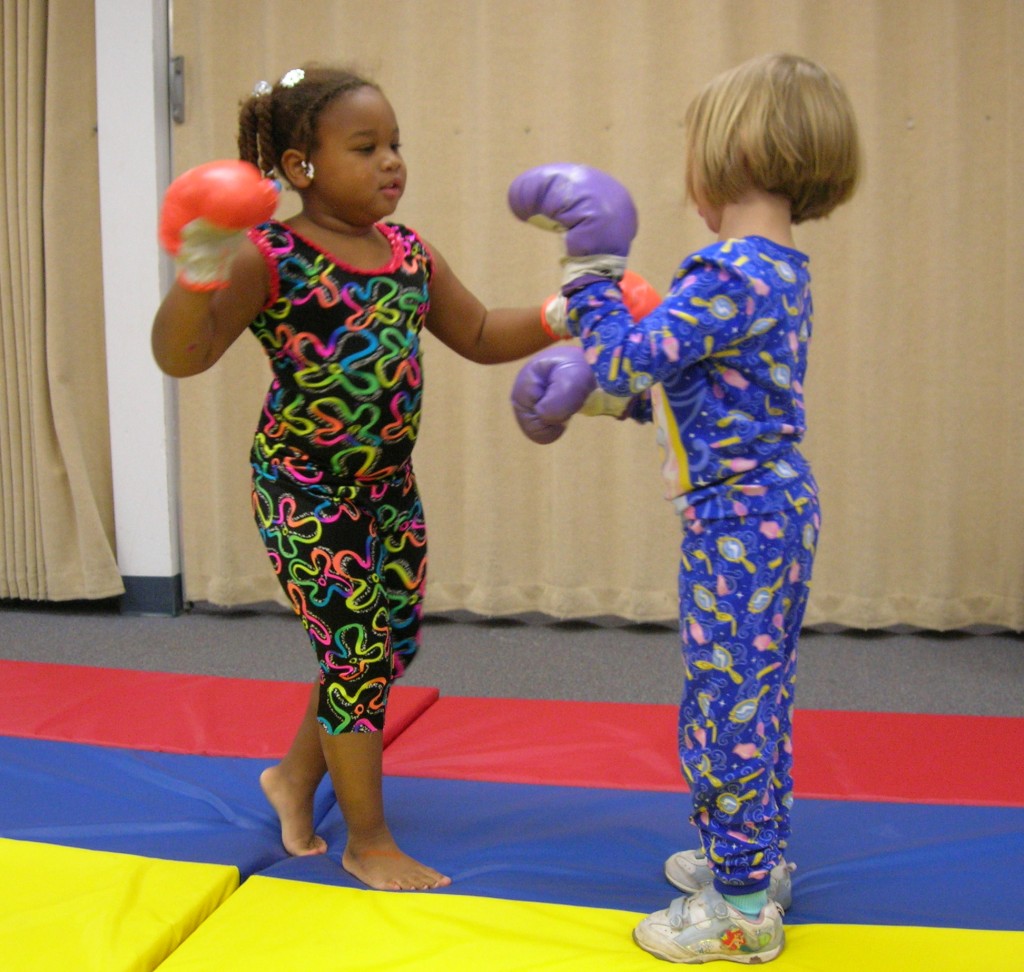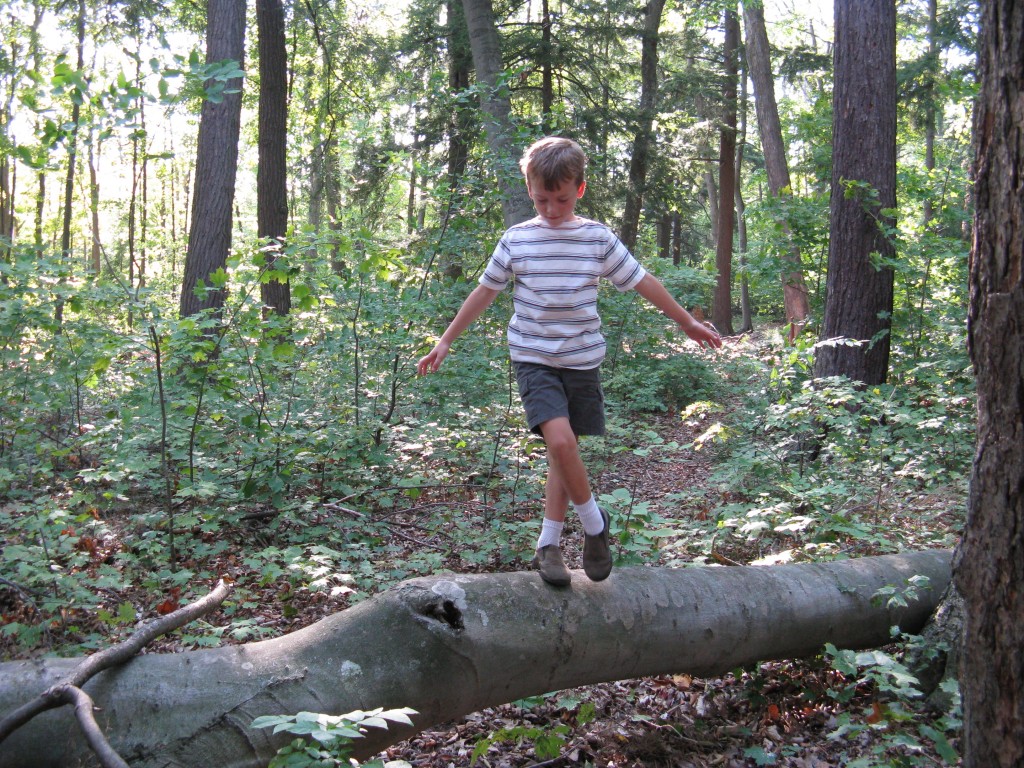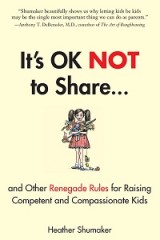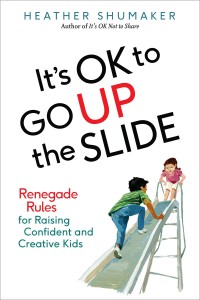Keep the PRE in preschool
I wrote an op-ed piece about the President’s call for universal preschool for 4-year-olds, and my editor replied asking ‘surely you don’t think having the kids learn the alphabet and numbers 1-10 is too academic?’
Well, er, yes I do.
If letter recognition and counting is an objective on its own, and is “taught” I don’t think it belongs in preschool. Here’s what does belong:
- Dramatic play – dress-up costumes, acting out stories, playing make-believe on topics of the children’s own choosing
- Physical play – running, jumping, climbing, sliding, chasing, and yes, even boxing and wrestling rough-and-tumble play
- Creative play – messy explorations with art and nature, open-ended play ideas involving sticks, logs and cardboard boxes
- Outdoor play – whatever the weather, hopefully with trees, dirt, sand and water
- Screams and tears – kids expressing their emotions, understanding it’s OK to be mad or sad and figuring out what’s appropriate and what’s not (All feelings are OK; all behavior isn’t.) This is huge.
- Conflict – kids encountering other kids and having problems. This is the life essential skill of conflict mediation: figuring out what-the-heck to do when conflict occurs (as it always will). Enormously important. Learning the basics of being a civilized human being.
- Meaningful, age-appropriate pre-literacy. Songs, finger chants, nursery rhymes, reading aloud, telling stories aloud, games, puppet shows, signs, dictated messages and stories.
Notice I said “pre” not literacy. Literacy means the ability to understand symbols and read and write. “Pre-literacy” and “pre-school” mean “before literacy” and “before school.” We are in danger when we skip over the prefix. A few young children take great interest in letters and teach themselves how to read at a tender age. Bravo – don’t stop them! But give the vast majority of young kids breathing space and time to be where they are now.
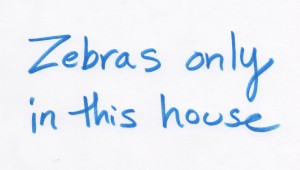 Pre-literacy is meaningful to kids when it’s relevant to their lives. A sign saying “Shh! Lucy’s animals are sleeping” is relevant to Lucy’s game. A homemade book with a child’s very own words (dictated to an adult) is meaningful and joyous. Nothing beats reading books aloud multiple times a day. There’s no agenda to make kids study the alphabet, like learning how to get dressed and learning how to behave, literacy is simply integrated into daily life.
Pre-literacy is meaningful to kids when it’s relevant to their lives. A sign saying “Shh! Lucy’s animals are sleeping” is relevant to Lucy’s game. A homemade book with a child’s very own words (dictated to an adult) is meaningful and joyous. Nothing beats reading books aloud multiple times a day. There’s no agenda to make kids study the alphabet, like learning how to get dressed and learning how to behave, literacy is simply integrated into daily life.
It’s important for kids to love stories and understand the power of words before they move on to true literacy.
And counting? Young kids can recite 1-2-3-4-5-6-7-8-9-10. That’s memory, not counting. True counting involves one-to-one correspondence, the mental concept that “two” means two of something. Kids develop one-to-one correspondence at different ages. Songs, stories and daily life reinforce these concepts already, and when the child is ready, she will learn them. Why waste her time drilling counting when she needs to be learning something else?
The President is calling for universal preschool, modeled after programs in Alabama where business people supported statewide preschool as a cost-effective method of generating a reliable, future workforce. These preschools have play, but it’s a heavy dose of teacher-directed play, the kind found in most public school classrooms (stack these blocks, play in this “learning center” now).
A high-quality preschool program looks radically different. It’s open-ended play, play directed by children, play that’s guided by adults trained in coaching emotions and conflict resolution. And no, it doesn’t teach the alphabet or counting.
I fear we are forgetting the “pre” and sending 4-year-olds directly to “school.”
What do you think belongs in PRE-school? What are your hopes and fears for national universal preschool?
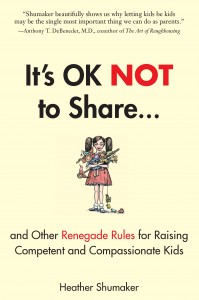 If you like these ideas, read more in my book:
If you like these ideas, read more in my book:
It's OK Not to Share...And Other Renegade Rules for Raising Competent and Compassionate Kids.
Free sample chapter and videos here.
